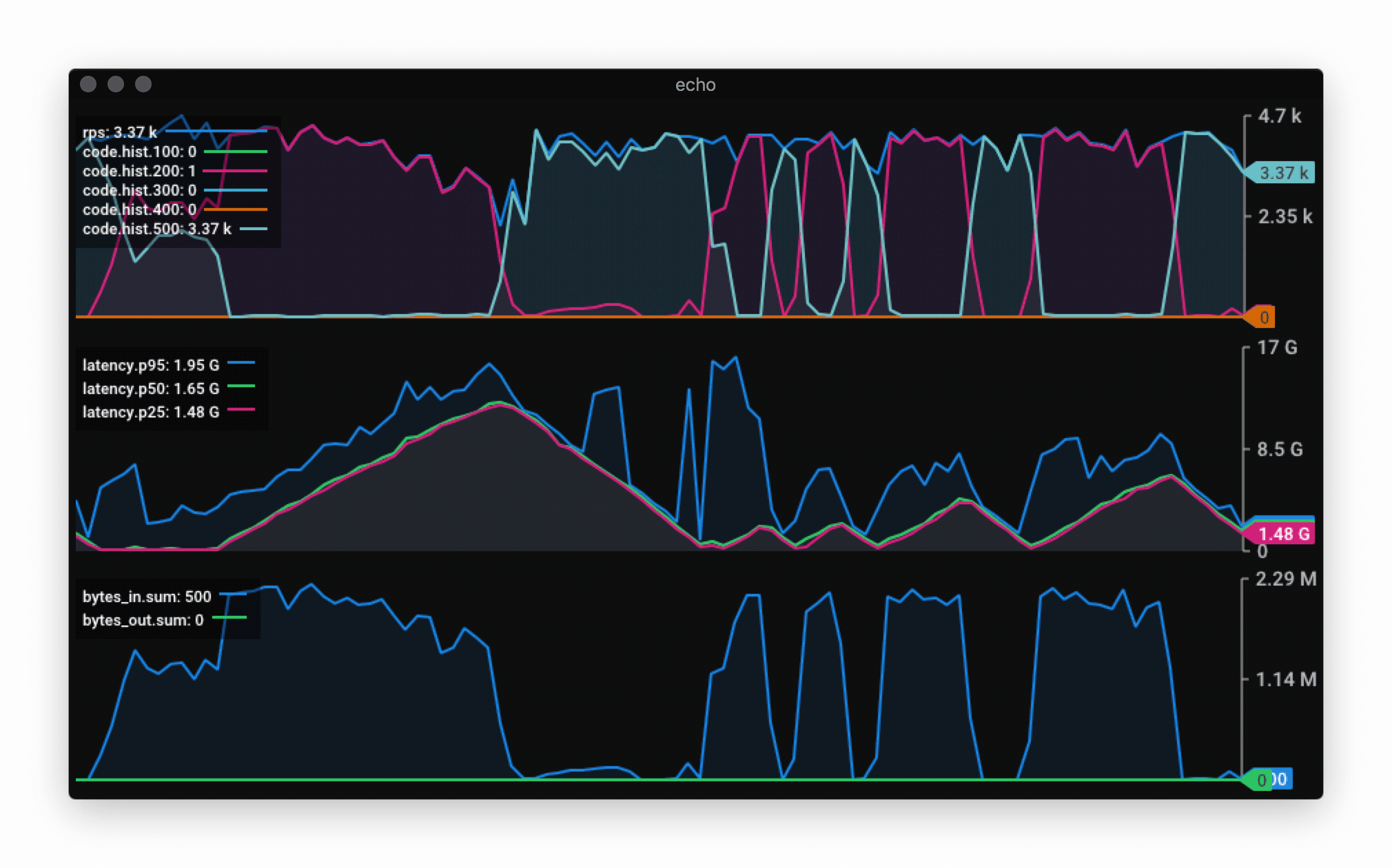rs / Jaggr
Projects that are alternatives of or similar to Jaggr
jaggr: JSON Aggregation CLI
Jaggr is a command line tool to aggregate in real time a series of JSON logs. The main goal of this tool is to prepare data for plotting with jplot.
Install
Direct downloads are available through the releases page.
Using homebrew on macOS (Go not required):
brew install rs/tap/jaggr
From source:
go get -u github.com/rs/jaggr
Usage
Given the input below, generate one line per second with mean, min, max:
{"code": 200, "latency": 4788000, "error": ""}
{"code": 200, "latency": 5785000, "error": ""}
{"code": 200, "latency": 4162000, "error": ""}
{"code": 502, "latency": 4461000, "error": "i/o error"}
{"code": 200, "latency": 5884000, "error": ""}
{"code": 200, "latency": 4702000, "error": ""}
...
tail -f log.json | jaggr @count=rps hist[200,300,400,500]:code min,max,mean:latency
Output will be on line per second as follow:
{"rps":123, "code": {"hist": {"200": 100, "300": 0, "400": 0, "500": 13}}, "latency":{"min": 4461000, "max": 5884000, "mean": 4483000}}
So here we give a stream of real-time requests to jaggr standard input and request the aggregation of the code and latency fields. For the code we request an histogram with some known error codes with an "other" bucket defined by *. The latency field is aggregated using minimum, maximum and mean. In addition, @count adds an extra field indicating the total number of lines aggregated. The = sign can be used on any field to rename it, here we use it to say that the count is an rps as we are using the default aggregation time of 1 second.
Note that any field not specified in the argument list are removed from the output (i.e. error field).
Field Syntax
A fields are JSON path prefixed with a list of aggregators. You can rename a field by suffixing it with =<name>. Here are some example of valid field declarations:
-
median:latency: Median computed for the latency field. -
median:latency=lat: Same as above but the field is renamedlat. -
min,max,mean:latency: Several aggregators applied to thelatencyfield. -
median:timing.latency=latency: Median of the sub-field latency of thetimingJSON object renamed as top levellatency. -
[100,200,300,400,500]hist:code: Code counted into bucket of 100s.
Aggregators
Available aggregators:
-
min,max,mean: Computes the min, max, mean of the field's values during the sample interval. -
median,p#: The p1 to p99 compute the percentile of the field's values during the sample interval. -
sum: Sum all values for the field. -
[bucket1,bucketN]hist: Count number of values between bucket and bucket+1. -
[bucket1,bucketN]cat: Count number of values equal to the define buckets (can be non-number values). The special*matches values that fit in none of the defined buckets.
Recipes
Vegeta
Jaggr can be used to integrate vegeta with jplot as follow:
echo 'GET http://localhost:8080' | \
vegeta attack -rate 5000 -duration 10m | vegeta dump | \
jaggr @count=rps \
hist\[100,200,300,400,500\]:code \
p25,p50,p95:latency \
sum:bytes_in \
sum:bytes_out | \
jplot rps+code.hist.100+code.hist.200+code.hist.300+code.hist.400+code.hist.500 \
latency.p95+latency.p50+latency.p25 \
bytes_in.sum+bytes_out.sum


